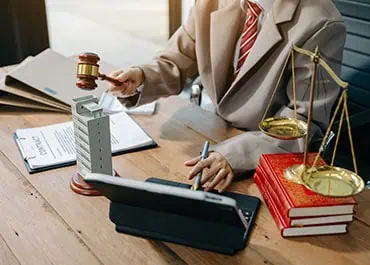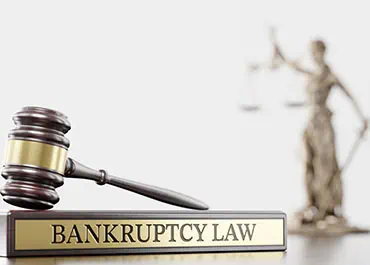
In this article, you can discover… How to know if you’re being needlessly pressured into bankruptcy. Red flags to be on the lookout for when shopping for help with bankruptcy. The risks of using a debt settlement service over bankruptcy in Illinois. How Will I Know If I’m Being Pressured Into Bankruptcy? Bankruptcy is an important decision, and you should…Read More

In this article, you can discover… How fair market value applies to your assets when filing for bankruptcy. Whether you can legally contest the value of your assets. Whether assets below a certain value can be omitted from your list of assets. Who Is Responsible For Conducting The Asset Valuation Process? This question can be challenging, as there is no…Read More

In this article, you can discover… Whether bankruptcy can allow you to discharge medical debt. The differences between Chapter 7 and Chapter 13 bankruptcy for medical debt. Whether future medical expenses can also be discharged through bankruptcy. Will Bankruptcy Allow Me To Discharge All Of My Medical Debt In Illinois? The simple answer is that you can discharge medical debts…Read More

Can I Keep My Retirement Savings If I File For Bankruptcy In Illinois? Yes, you can generally keep your retirement savings if you file for bankruptcy in Illinois. Under Illinois law, retirement accounts like 401(k)s, 403(b)s, and IRAs are fully protected, which means they’re also protected under the bankruptcy code. However, there is an important caveat: the funds must be…Read More

How Does Bankruptcy Litigation Differ From The Regular Bankruptcy Process? If you’re going through bankruptcy or thinking about filing, you may have heard the term "bankruptcy litigation." While it can sound intimidating, understanding how it differs from the regular bankruptcy process can help you feel more prepared. In a regular bankruptcy process, the focus is on addressing your debts and…Read More

How Can Social Media Be Used Against Me In Bankruptcy Court In Illinois? If you're thinking about filing for bankruptcy, it’s important to understand how even your social media activity can impact your case. The U.S. Trustee's office has the right to investigate if they believe something isn’t adding up in your bankruptcy filings, and can request a 2004 exam,…Read More

Facing Chapter 11 bankruptcy can feel overwhelming, especially when you’re bombarded with legal jargon and unfamiliar terms. You may be grappling with uncertainty, worried about how your business will survive, or anxious about navigating the court process. Understanding key terms—like “automatic stay” or “debtor-in-possession”—can ease some of this stress and help you regain a sense of control. This guide breaks…Read More
Whether you fail to make the monthly payments or meet certain deadlines, there are several ways a Chapter 13 bankruptcy case can be dismissed. Once the court dismisses your case, the automatic stay that prevents creditors from collecting debts from you will no longer be in effect, which makes you liable for all your debts. So, what happens if your…Read More
When you file for bankruptcy, you must properly complete your bankruptcy papers, adhere to all local and federal rules, and appear in all mandatory hearings. Failure to comply at any point of the legal process can result in the bankruptcy court dismissing your case. When your bankruptcy case is dismissed before you receive a discharge, you will lose the automatic-stay…Read More
Whether you are going through bankruptcy or trying to improve your credit afterward, you need to be smart about using your credit cards. Although they provide you with spending flexibility, especially if you are strapped for cash, failure to pay your balance in full at the end of the month can harm you in the long run. The following are…Read More

